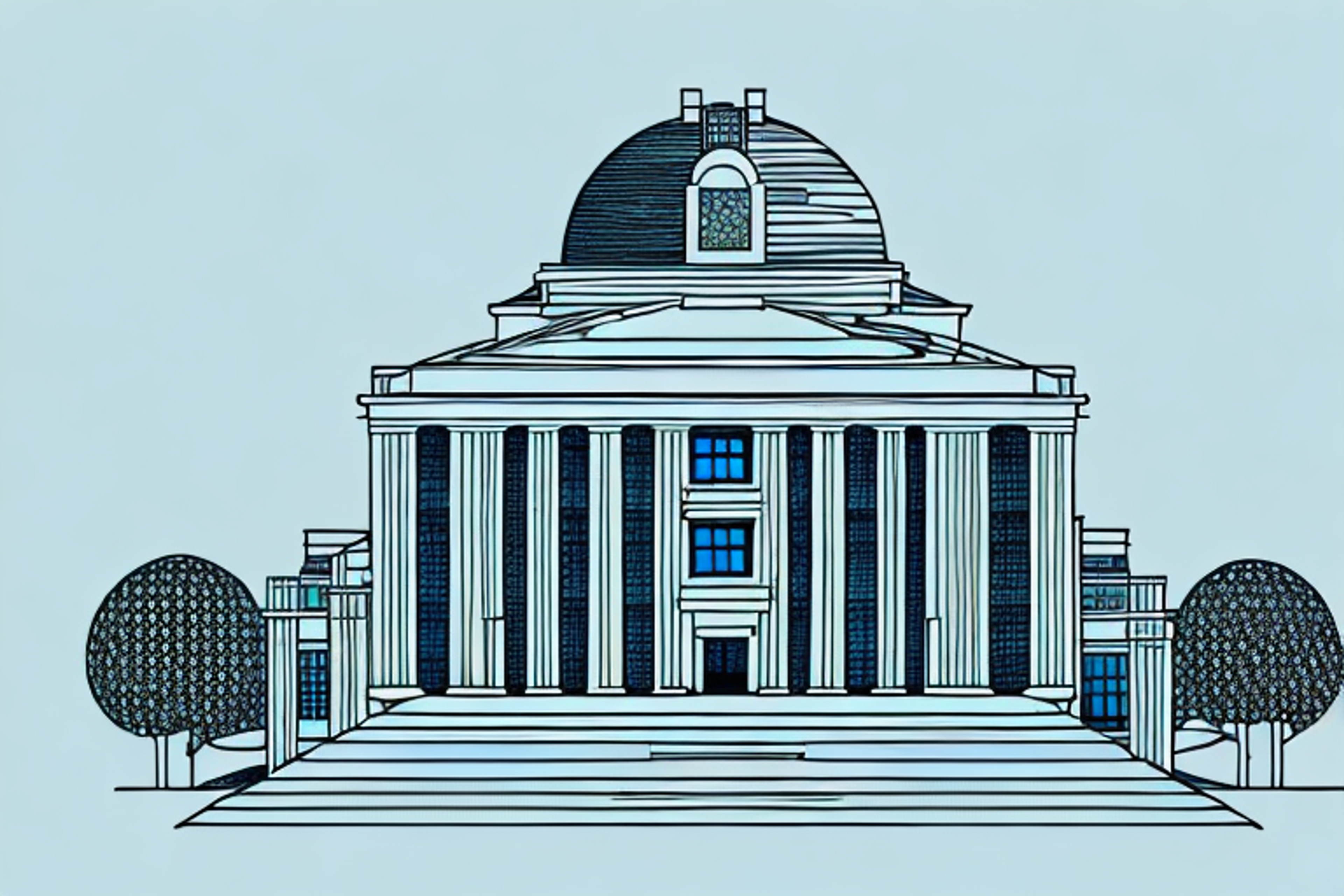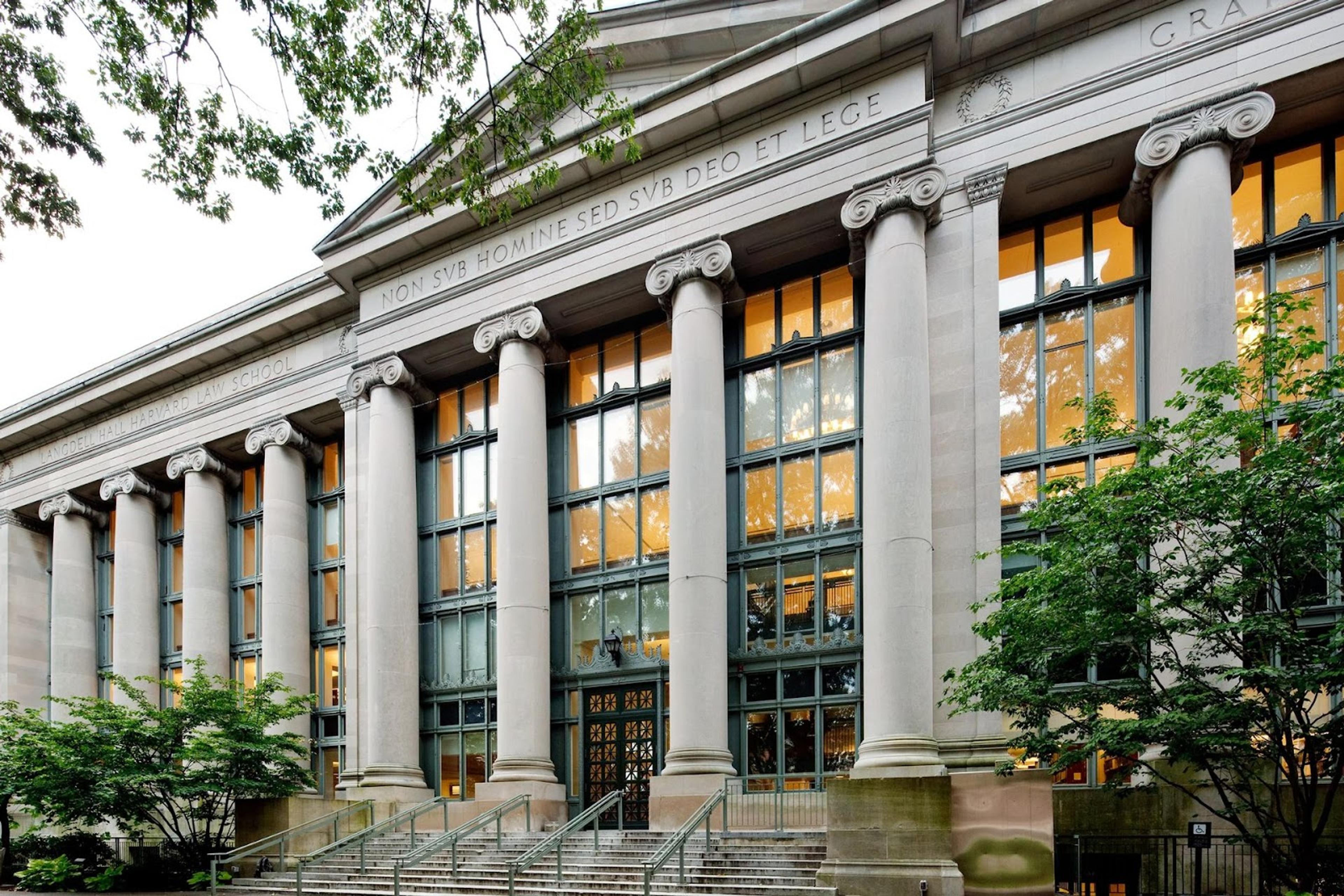A Comprehensive Guide to HBCU Law Schools
Historically Black Colleges and Universities (HBCUs) have played a pivotal role in providing higher education opportunities for African Americans in the United States. This comprehensive guide will explore HBCU law schools, highlighting their significance, admission processes, and much more.
Posted March 6, 2025

Table of Contents
Free Event

Featuring Indrani S.
Law School App Office Hours with a Former Stanford AdCom Member
Starting Thursday, April 17
11:30 PM UTC · 45 minutes

Featuring Indrani S.
HBCU Law Schools: An Overview
There are currently six HBCU law schools in the United States, each with its unique history and contributions to legal education:
1. Howard University School of Law
Howard University School of Law, located in Washington, D.C., is a prestigious institution with a rich history of promoting social justice and civil rights. Founded in 1869, it is one of the oldest law schools in the United States historically serving African American students. Howard Law specializes in producing legal professionals who are committed to advocating for equality, diversity, and the protection of civil liberties. The school's curriculum places a strong emphasis on critical legal theory and practical experience, equipping students with the skills and knowledge necessary to excel in various fields of law, including civil rights, public interest law, and social justice advocacy.
2. Southern University Law Center
Southern University Law Center is a prestigious institution located in Baton Rouge, Louisiana, known for its commitment to providing top-quality legal education and promoting diversity in the legal profession. Established in 1947, it has a rich history of producing skilled lawyers who are dedicated to social justice and advocacy. The law center specializes in areas such as civil rights law, environmental law, and maritime law, offering a comprehensive curriculum that equips students with the knowledge and skills needed to excel in these fields.
3. North Carolina Central University School of Law
North Carolina Central University School of Law, located in Durham, North Carolina, is a prominent institution known for its commitment to providing quality legal education. Established in 1939, it has a rich history of promoting social justice and diversity within the legal profession. NCCU School of Law specializes in offering a comprehensive legal education that emphasizes public service, civil rights, and social justice advocacy. With a focus on experiential learning and a strong commitment to community engagement, the school prepares its students to become competent, ethical, and socially responsible lawyers who can make a positive impact in their communities and the world at large.
4. FAMU College of Law
FAMU Law is a renowned institution located in Orlando, Florida. FAMU Law specializes in providing a comprehensive legal education with a strong focus on diversity, social justice, and community engagement. It is committed to producing highly skilled and socially conscious lawyers who can make a positive impact in their communities. With a curriculum that emphasizes experiential learning and practical skills, FAMU Law prepares its students for successful careers in various areas of law, including civil rights, criminal justice reform, and advocacy for underrepresented populations.
5. Thurgood Marshall School of Law
The Thurgood Marshall School of Law (TMSL) is a renowned institution of legal education, located in Houston, Texas. Established in 1947, it is named after the iconic civil rights advocate and Supreme Court Justice, Thurgood Marshall. TMSL specializes in providing a comprehensive legal education with a strong emphasis on social justice, civil rights, and advocacy. The school is dedicated to producing highly skilled and socially conscious legal professionals who are committed to fighting for justice and equality. TMSL's rich history and commitment to promoting diversity and access to legal education make it a fantastic institution for those aspiring to make a positive impact on society through the practice of law.
6. University of DC School of Law
Known for its commitment to public interest law and social justice, UDC Law specializes in producing lawyers dedicated to addressing the legal needs of underserved communities. The school's curriculum places a strong emphasis on clinical experiences, ensuring that students gain practical skills while advocating for social change. UDC Law is particularly renowned for its clinical programs, including the Community Development Law Clinic and the Housing and Consumer Law Clinic, which provide students with hands-on opportunities to work on cases that have a significant impact on marginalized populations.
All six HBCU law schools are accredited by the American Bar Association (ABA), ensuring that they meet rigorous standards for legal education. Additionally, they maintain regional accreditation from organizations such as the Southern Association of Colleges and Schools Commission on Colleges (SACSCOC).
In terms of rankings, HBCU law schools may not always be highly ranked in national or regional rankings, but they excel in providing a supportive and inclusive environment for their students. Rankings may not fully capture the unique strengths and contributions of these institutions, such as their commitment to diversity and social justice.
Unique Features and Specializations
HBCU law schools offer a range of unique features and specializations that distinguish them from other law schools:
- Diversity and Inclusion: HBCU law schools take pride in their diverse student bodies, fostering a supportive atmosphere where students from various backgrounds can thrive.
- Civil Rights and Social Justice: Many HBCU law schools have a strong tradition of promoting civil rights and social justice. They often offer courses, clinics, and programs that focus on these critical issues.
- Community Engagement: HBCU law schools frequently engage with their local communities through legal clinics and outreach programs. Students gain practical experience while serving underserved populations.
- Advocacy and Moot Court: HBCU law schools are known for their strong advocacy programs, including moot court and mock trial teams that compete nationally and excel in trial advocacy.
- Cultural Connections: These institutions often celebrate and promote African-American culture and history, fostering a sense of cultural connection and pride among their students.
- Small Class Sizes: HBCU law schools typically maintain smaller class sizes, allowing for more personalized attention and close relationships between students and faculty.
Admission Processes for HBCU Law Schools
Admission to HBCU law schools involves a series of steps to ensure that prospective students meet the necessary requirements and can excel in their legal education. In this section, we'll outline the admission process for each of the six HBCU law schools mentioned previously:
Howard University
Application Deadline: February 28, 2024
Acceptance Rate: ~43%
Application Requirements:
- LSAT
- Personal Statement
- 2 Letters of Recommendation
- Resume
- Transcripts
Southern University
Application Deadline: May 1, 2024
Acceptance Rate: ~65%
Application Requirements:
- Transcripts
- LSAT
North Carolina Central University
Application Deadline: April 30, 2024
Acceptance Rate: ~41%
Application Requirements:
- Personal Statement
- Resume
- LSAT
- 2 Letters of Recommendation
FAMU College of Law
Application Deadline: May 31, 2024
Acceptance Rate: ~49%
Application Requirements:
- Personal Statement
- Resume
- LSAT
- 2 Letters of Recommendation
Thurgood Marshall School of Law
Application Deadline: August 1, 2024 (Rolling)
Acceptance Rate: ~30%
Application Requirements:
- Personal Statement
- Resume
- LSAT
- 2 Letters of Recommendation
University of DC School of Law
Application Deadline: February 15, 2024 (Priority) // May 1, 2024 (Regular)
Acceptance Rate: ~35%
Application Requirements:
- Personal Statement
- Justice Essay
- Resume
- LSAT
- 1 Letter of Recommendation
For tips and expert advice on how to stand out in the law school application process, read:
- How to Get Into Law School: Advice from an Expert
- How to Write a Compelling Law School Personal Statement
- The Top 10 Mistakes People Make on their Graduate School Applications
Advantages of Attending HBCU Law Schools
HBCU law schools offer a unique and enriching educational experience that comes with several advantages for students.
One of the standout advantages of attending HBCU law schools is the strong sense of community and support that students find. This supportive environment is fostered by several factors:
- Close-Knit Community: HBCU law schools often have smaller class sizes, creating an intimate learning environment where students and faculty can establish meaningful relationships. This sense of community promotes collaboration, mentorship, and a personalized learning experience.
- Shared Experiences: Many students at HBCU law schools share common backgrounds and experiences, which can create a unique sense of camaraderie. This shared history often leads to a greater understanding and support network among peers.
- Accessible Faculty: Faculty at HBCU law schools are typically known for their accessibility and willingness to provide additional guidance to students. Professors often take an active interest in their students' success, offering mentorship and support beyond the classroom.
In addition, HBCU law schools celebrate and embrace cultural diversity, offering a wealth of advantages:
- Cultural Pride: Students at HBCU law schools have the opportunity to connect with their cultural heritage and celebrate the contributions of African Americans to the legal profession and society as a whole. This cultural pride can be a source of motivation and inspiration.
- Diverse Perspectives: HBCU law schools attract a diverse student body from various backgrounds and regions. This diversity of perspectives enriches classroom discussions and enhances students' ability to approach legal issues from multiple viewpoints.
- Inclusive Learning Environment: HBCU law schools are often at the forefront of promoting diversity and inclusion in legal education. This inclusive environment encourages open dialogue and a deeper understanding of social justice issues.
Finally, networking is a crucial component of legal education, and HBCU law schools offer unique networking advantages:
- Alumni Network: HBCU law schools have proud and accomplished alumni who are often deeply committed to supporting current students. This alumni network can provide valuable connections and mentorship opportunities for aspiring attorneys.
- Community Engagement: HBCU law schools are typically closely connected to their local communities, offering students opportunities to engage with practicing attorneys, judges, and community leaders. These connections can lead to internships, externships, and job opportunities.
- Professional Organizations: Students at HBCU law schools are encouraged to participate in various student organizations, moot court teams, and legal associations. These activities provide opportunities to build professional networks and gain exposure to legal practitioners.
In sum, attending an HBCU law school offers advantages that extend beyond traditional legal education. The supportive community, celebration of cultural diversity, and extensive networking opportunities create an environment that prepares students not only for successful legal careers but also for making a positive impact on their communities and the legal profession as a whole.
Potential Challenges of Attending HBCU Law Schools
While attending HBCUs can offer numerous advantages, it's essential to recognize that there can be challenges associated with this educational choice. These challenges may vary depending on the individual's background and circumstances. Here are some potential challenges of attending an HBCU:
- Financial Constraints: HBCUs, like many educational institutions, may face financial constraints that can impact the availability of resources, scholarships, and financial aid. Some students may find it challenging to cover tuition and living expenses, potentially leading to increased student debt.
- Limited Program Diversity: While HBCUs excel in providing a culturally rich and inclusive environment, they may offer a more limited range of academic programs compared to larger, mainstream institutions. Students seeking specialized or niche programs may face constraints in their academic choice.
- Geographic Location: Some HBCUs are located in areas with limited access to certain industries or job markets. This geographic limitation can affect internship and employment opportunities for students who wish to work in specific regions or industries.
It's important to note, though, that these potential challenges should not deter individuals from considering HBCUs as viable educational options. Many students find that the advantages of attending an HBCU, such as the supportive community and cultural connections, outweigh the challenges. Moreover, proactive steps can be taken to mitigate these challenges, including seeking financial aid, engaging with alumni networks, and actively participating in the academic and social life of the institution. Ultimately, the decision to attend an HBCU should be based on individual goals, preferences, and priorities.
How to Decide if an HBCU is Right for You
Deciding if an HBCU is the right choice for you requires thoughtful consideration of your academic, personal, and career goals. First, assess your values and priorities. If you value a strong sense of community, cultural connection, and an inclusive environment that celebrates diversity, an HBCU may be an excellent fit. Consider your academic interests and whether the HBCU offers the programs and specializations that align with your career aspirations. Research the campus culture and support systems in place to ensure they resonate with your needs. Additionally, think about your financial situation and whether the institution's financial aid options align with your budget. Engaging with current students, alumni, and faculty members can provide valuable insights into the HBCU experience and help you determine if it aligns with your goals and values.
Furthermore, assess the potential challenges and advantages associated with attending an HBCU. Consider the geographic location and how it may impact your career opportunities and lifestyle. Reflect on your comfort level with being in a potentially minority-majority environment, and how this may affect your social and cultural experiences. Weigh the advantages, such as strong community support and cultural pride, against any potential challenges, and determine if the benefits align with your personal and professional growth. Ultimately, the decision to attend an HBCU should align with your long-term goals and the type of educational experience you seek, ensuring that it's a positive and enriching journey toward your future endeavors.
Final Note
If you’re looking to seek admission to an HBCU, we highly recommend working one-on-one with a Leland law school admissions coach. Here are some of our most popular and highest-rated ones:
Here are a couple more resources you may find helpful as you put together your applications:
- Everything You Need to Know About LSAC and the CAS Report for Law School
- Best Public Interest Law Schools: Fostering a Commitment to Social Justice
Finally, don't forget to sign up for Leland. When you've joined, you'll get access to exclusive classes and events, a community of other applicants, discount codes, and much more. Let's get you into your dream JD program!










